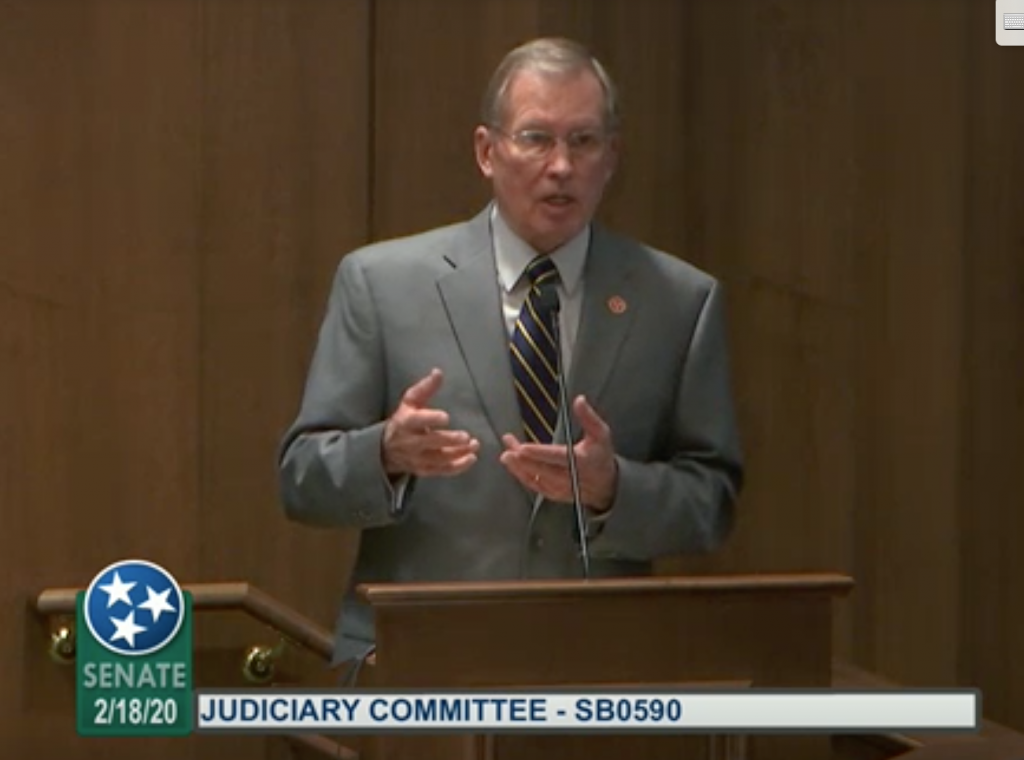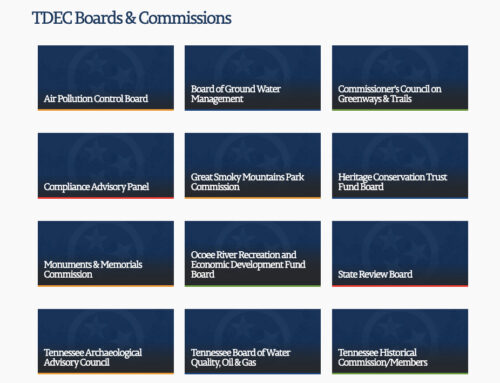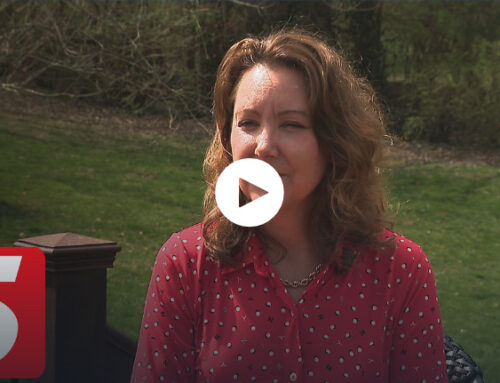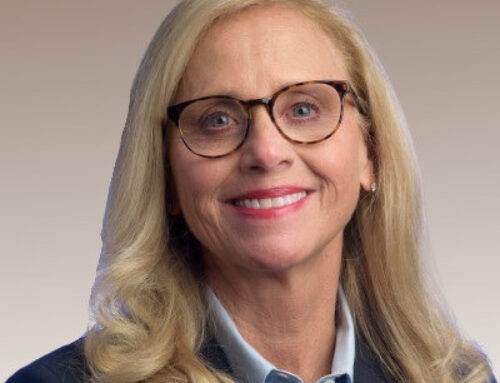The Advisory Committee on Open Government will meet at 1 p.m. Wednesday to discuss legislation that would limit public records requests from people found to be harassing the government.
The meeting will be livestreamed and can be viewed by the public through the following link: https://tngov.webex.com/tngov/onstage/g.php?MTID=ebf38667b9ad074a64ca63d6e491c9
ab1.
Sen. Ferrell Haile, R-Gallatin, asked the 14-member committee to review his proposed bill that would allow a government entity to seek an injunction against a person whose behavior met a harassment definition outlined in the bill.
Haile has worked on the bill for two years. He introduced it in 2019 and presented an amended version in February to the Senate Judiciary Committee. The committee voted it down 5-4 after about an hour of questions and testimony. It was not heard in the House. (See video of the committee hearing and TCOG’s story about it here.)

The Advisory Committee on Open Government is a 14-member committee, plus two lawmakers and a representative from the Attorney General’s office, created to provide guidance to the Office of Open Records Counsel. It also is authorized by law to “provide reports on open records and open meetings laws and issues as requested by the governor or any committee of the general assembly.”
Haile requested that the committee review the amendment he presented and provide feedback to him before the 2021 legislative session. He has said he wants to try again to address a problem that was first brought to him by the Gallatin mayor involving a requester who appeared to be flooding the city with requests with no legitimate purpose. Since he introduced the bill, he has said he has heard from other government officials who say they have similar problems.
“Let me be clear,” Haile said in the letter to ACOG. ” I am a strong supporter of open government and open records. In no way am I attempting to suppress any citizen’s right to critique their government’s actions or review government records. However, it is clearly apparent that there are some individuals that have no intent on using their rights in a responsible manner and only wish to force governments to produce records for the purpose of inflicting financial damage, for whatever reason.”
The advisory committee is chaired by Adam Yeomans, vice president of the Tennessee Coalition for Open Government board of directors and regional director of the south for The Associated Press, and Kathryn Strong, the Sumner County Court Circuit Clerk.
The two lawmakers on the committee are, by statute, the chair of the State and Local Government Committee of the Senate and the State Government Committee of the House of Representatives, which are Steve Dickerson, R-Nashville, and Kelly Keisling, R-Byrdstown, respectively.
Other members of ACOG are:
Jack McElroy, representing the Tennessee Press Association
Ken Krushenski, representing the Tennessee Municipal League
Debbie Shedden, representing the Tennessee School Board Association
Perry McDonald, representing the League of Women Voters
Carey Whitworth, representing the University of Tennessee
Jeff Hughes, representing the Tennessee Association of Chiefs of Police
Dick Williams, representing Common Cause
Amy Garner, representing theTennessee Hospital Association
Dan Haskell, representing the Tennessee Association of Broadcasters
Harold Beaver, representing AARP
Steven Cavendish, representing the Society of Professional Journalists
Mike Breedlove, representing the Tennessee Sheriffs’ Association
Janet Kleinfelter is an ex-officio member representing the Attorney General’s Office.
After the bill was introduced, TCOG, along with others in the open government community, worked with Sen. Haile on potential amendatory language to provide protections for requesters. The biggest concern in the open government community has been creating a mechanism that could be a tool to intimidate citizens or used unfairly against records requesters, particularly those who make frequent requests or request information that a government official does not want to release.
Lawmakers on the Senate Judiciary Committee also expressed concern. Judiciary Committee Chairman Mike Bell, R-Riceville, said he was concerned the bill would punish political gadflies who government officials found annoying. Sen. Jon Lundberg, R-Bristol, said he thought the bill, while seeking to solve one problem, would open the door to many others. Sen Sara Kyle, D-Memphis, also voted against the bill. She said she thought the harassment definition was “too subjective” and “we’re going down a slippery slope.”




